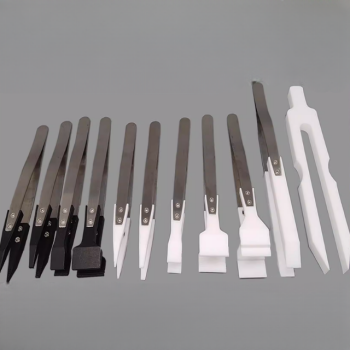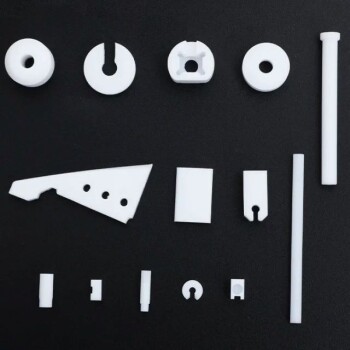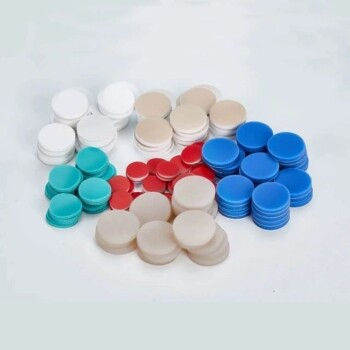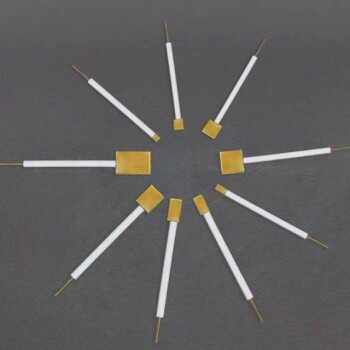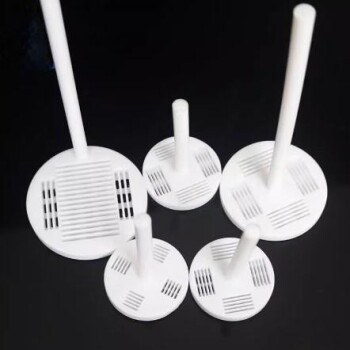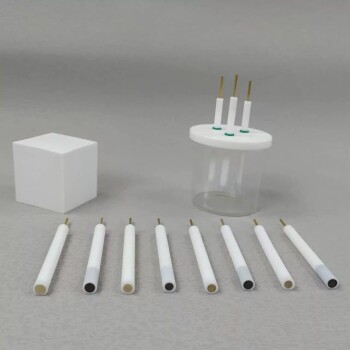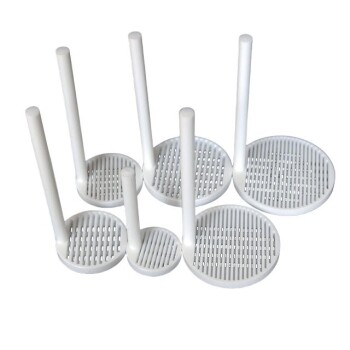There are several factors to consider when choosing disposable gloves for use in a laboratory setting. These include the material of the gloves, the thickness and durability of the gloves, and the level of protection they provide against chemicals and other hazards.
It is important to choose gloves that are suitable for the specific chemical or hazard you will be working with, and to follow all appropriate safety guidelines when using disposable gloves in the laboratory.
Latex Gloves
Latex gloves are popular in a variety of industries, including medical and industrial settings, because they are inexpensive and offer good fit, comfort, and dexterity.
They are also relatively elastic, which allows for good flexibility and movement. However, some individuals may be allergic to latex, in which case they should avoid using latex gloves or choose an alternative material such as nitrile or vinyl.
It's also important to note that latex gloves should not be used for food preparation or handling, as the proteins present in natural rubber latex can cause allergic reactions in some individuals.
In these cases, it is recommended to use gloves made from alternative materials such as nitrile or vinyl.
Gloves with textured fingertips can provide improved grip in wet or slippery environments, as the textured surface can help to increase friction and improve the grip of the gloves. This can be especially useful in laboratory and medical settings where it is important to maintain a secure grip on instruments or other objects.
It's also worth noting that gloves with textured fingers may not be suitable for all applications, as the textured surface can sometimes reduce sensitivity or interfere with certain types of tasks. It is important to choose gloves that are appropriate for the specific application and to follow all appropriate safety guidelines when using disposable gloves in the laboratory or any other setting.
Nitrile Gloves
Nitrile gloves are made from synthetic rubber, which makes them a good alternative for those with allergies to natural rubber latex. They are also more chemical-resistant than latex gloves, making them suitable for handling a wider range of chemicals. Nitrile gloves also have a longer shelf life than latex gloves and are more puncture-resistant, which makes them a durable choice for many applications.
In addition to their chemical resistance and durability, nitrile gloves are also known for their good fit, flexibility, and tactile sensitivity. These features make them a popular choice in industries such as food service, laboratories, and healthcare, where a good fit and good sensitivity are important.
It's important to keep in mind that while nitrile gloves offer many advantages, they may not be suitable for all applications. For example, they may not be as flexible or offer as good a fit as latex gloves, and they may not be as resistant to certain chemicals as other types of gloves.
Vinyl Gloves
Vinyl gloves are a type of disposable glove that is made from polyvinyl chloride (PVC). They are often used in light, low-risk applications where durability and high levels of protection are not required, such as food handling or cleaning.
One of the main advantages of vinyl gloves is that they are relatively inexpensive compared to other types of disposable gloves, such as latex or nitrile. They are also easy to put on and take off, and they tend to have a looser fit than other types of gloves, which can make them more comfortable to wear for some people.
However, it's important to note that vinyl gloves are not as durable as latex or nitrile gloves and may not provide as much protection against chemicals or other hazards. They are also more prone to tearing and may not fit as well as other types of gloves.
In general, vinyl gloves are suitable for light, low-risk applications where durability and high levels of protection are not a concern. For more demanding applications or tasks that involve handling chemicals or other hazards, it is usually best to choose gloves made from a more durable material such as latex or nitrile.
Glove Specification
Tensile strength and thickness are important factors to consider when choosing disposable gloves.
Tensile strength refers to the resistance of the glove material to breaking under tension, and it is usually measured in megapascals (MPa). Higher tensile strength generally indicates a more durable and stronger glove material.
Thickness, also known as mil thickness, refers to the thickness of the glove material and is typically measured in mils, with one mil equal to one-thousandth of an inch (0.001 inch). Gloves with lower mil thicknesses are generally more flexible and offer better dexterity, while gloves with higher mil thicknesses offer more protection and are less likely to tear.
It's important to choose gloves with the appropriate tensile strength and thickness for the specific application. For example, gloves with a higher tensile strength and mil thickness may be more suitable for tasks that involve handling heavy or sharp objects, while gloves with a lower tensile strength and mil thickness may be more suitable for tasks that require more dexterity and sensitivity.
It's also worth noting that the fit of the gloves can also affect their performance and the level of protection they provide. It is important to choose gloves that fit well and are comfortable to wear in order to maximize their effectiveness and ensure the safety of the user.
Choose the best gloves
Disposable gloves are used in a variety of settings, including the medical and dental fields, laboratories, industrial settings, and food service. Each of these settings has specific requirements for the type of gloves that are used, and it is important to choose gloves that are suitable for the specific application.
In the medical and dental fields, comfort and durability are important considerations when choosing gloves. These gloves should also be powder-free to prevent the risk of contamination.
In laboratories, it is important to choose gloves that can protect against harmful chemicals and hot or cold liquids. These gloves should also help to maintain a clean and comfortable working environment.
Industrial workers may be exposed to a range of hazards, including chemicals and sharp objects, and it is important to choose gloves that are durable enough to withstand these hazards. It is also important to choose gloves that comply with OSHA standards and regulations.
Food service workers may also have specific requirements for their gloves, such as a combination of comfort and safety. It is important to choose gloves that conform to the highest standards of safety and offer a lightweight design for all-day comfort.
In general, it is important to choose gloves that are suitable for the specific application and to follow all appropriate safety guidelines when using disposable gloves in the laboratory or any other setting.
Related Products
- Laboratory Hydraulic Press Lab Pellet Press Machine for Glove Box
- 24T 30T 60T Heated Hydraulic Press Machine with Heated Plates for Laboratory Hot Press
- Automatic Laboratory Hydraulic Pellet Press Machine for Lab Use
- Automatic Heated Hydraulic Press Machine with Heated Plates for Laboratory Hot Press 25T 30T 50T
- Laboratory Manual Hydraulic Pellet Press for Lab Use
Related Articles
- Understanding Laboratory Press and its Functionality in Rubber Industry
- Automatic flat plate heat press operating steps
- Fully automatic tablet press operating steps and replacement accessories
- An In-Depth Guide on Laboratory Presses and KBr Pellets Production
- Why do we need to use a lab presses for pelletizing?












